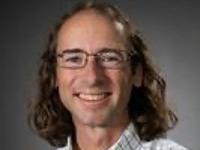Join the Department of Engineering & Society for a talk by Prof. Brent Jesiek, Engineering Education & Electrical and Computer Engineering, Purdue University
Event Actions
Abstract: As the pace of technological change accelerates and technological systems become ever more complex, preparing engineers for emerging workplace realities is all the more difficult. Organizational restructuring, the digitization of work, and shifts in job roles and corporate cultures create further challenges. Yet these contemporary realities are often poorly understood, in part due to a lack of research on engineering work practices. And without well-researched and trustworthy representations of practice, we miss opportunities to better prepare engineers to survive and thrive in a wide variety of job roles and career paths. In this talk I use an example of software engineering practice in a start-up environment to characterize technical work practices as often concerned with maintaining and scaling systems, and argue that such work is frequently sociotechnical, indeterminate, and value laden. I also introduce the innovative ethnographic data collection strategies employed in this research, which included graduate student interns acting as participant observers in the host company. My claims about the nature of engineering work are bolstered by findings from other studies, including my own research on boundary spanning and professional ethics in engineering practice. Throughout the talk I touch on some implications for educating engineers, including ways to promote contextualized and reflective learning.
Research Interest: Dr. Jesiek draws on expertise from engineering, computing, and the social sciences to investigate geographic, disciplinary, and historical variations in engineering education and professional practice. His research portfolio includes studies focused on global competency and boundary spanning in engineering practice, perceptions of ethics and social responsibility among undergraduate engineering students, and the history of electrical and computer engineering education. He primarily identifies with qualitative research traditions,but has also carried out studies using quantitative and mixed methods approaches.
